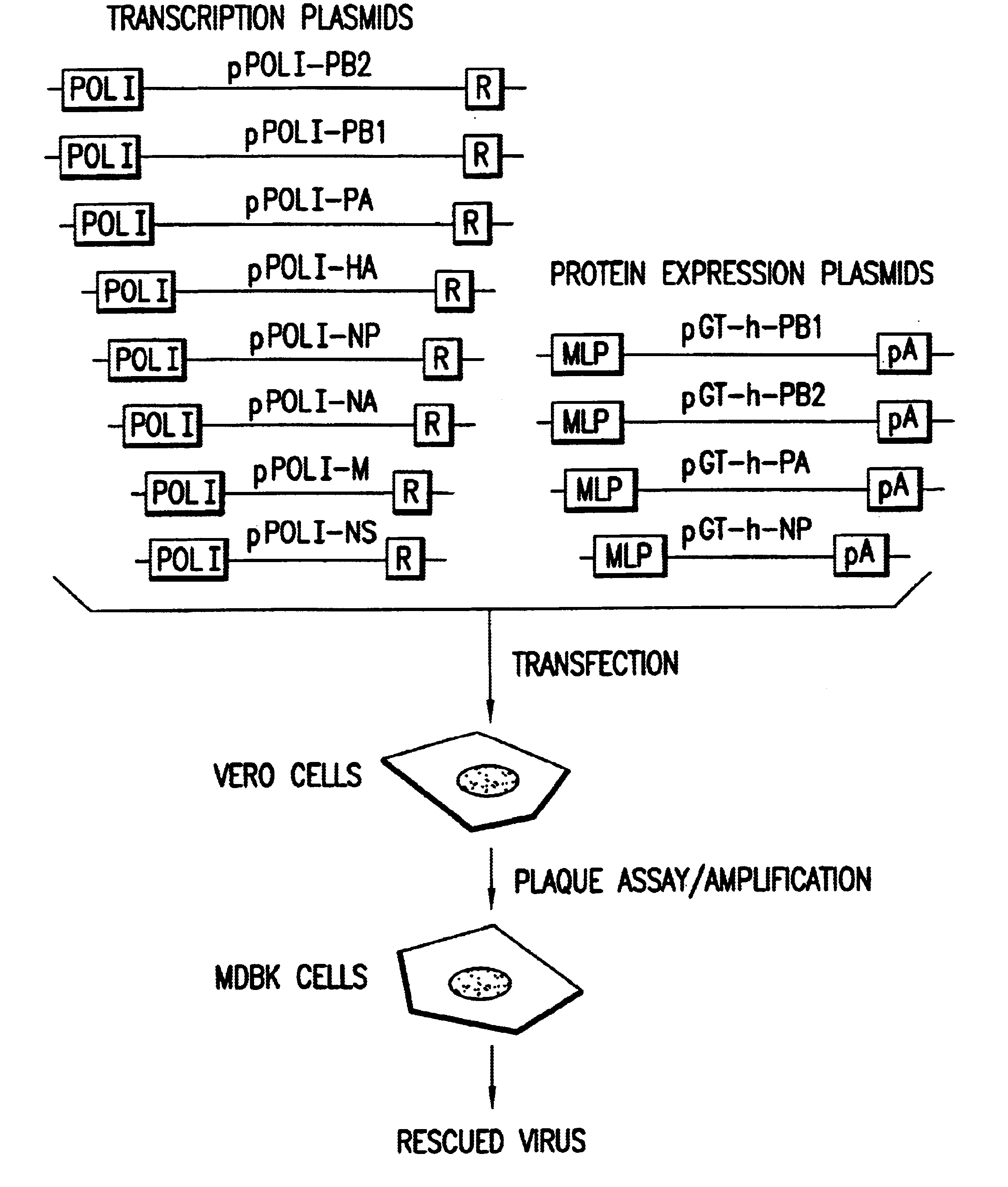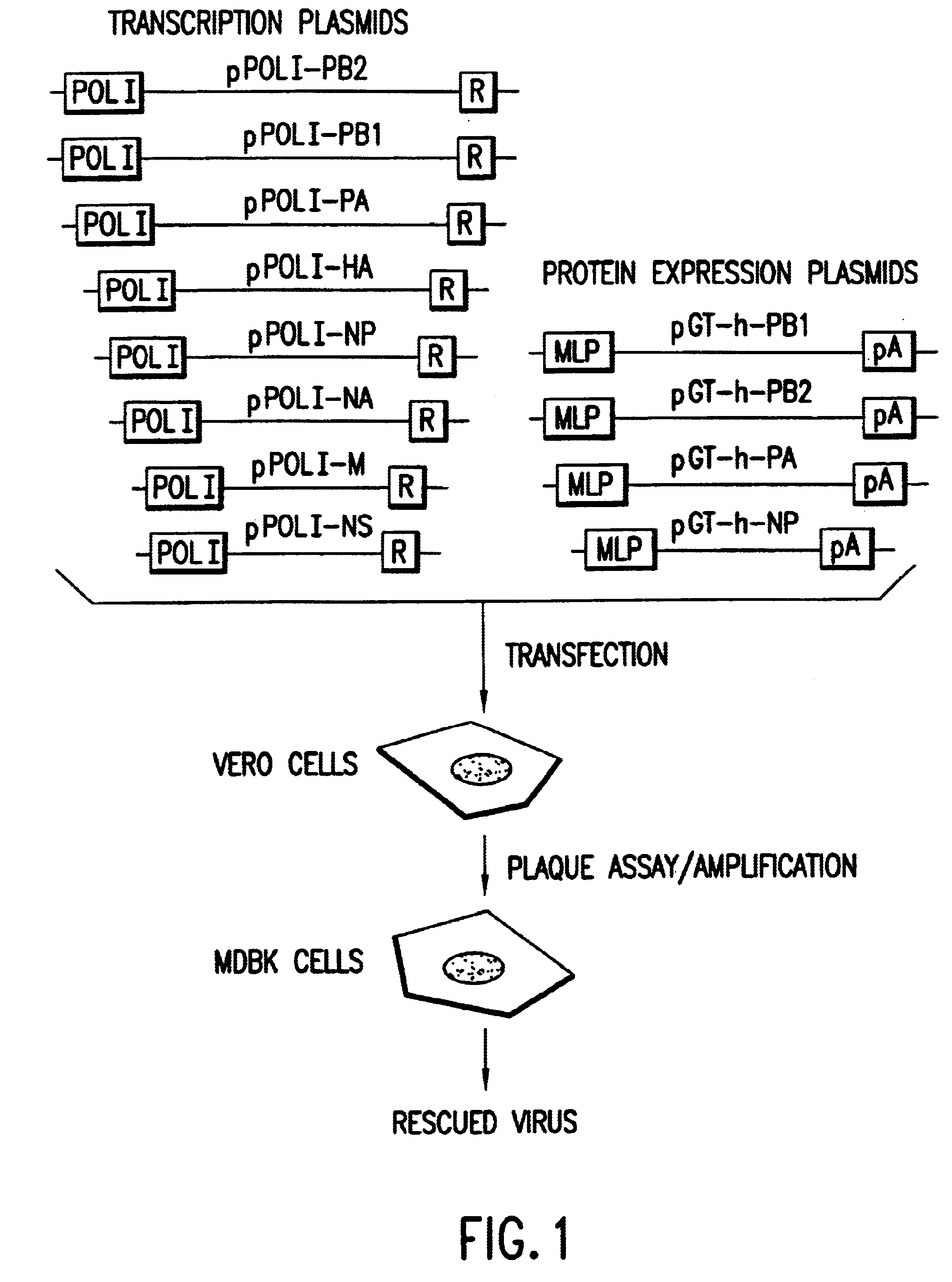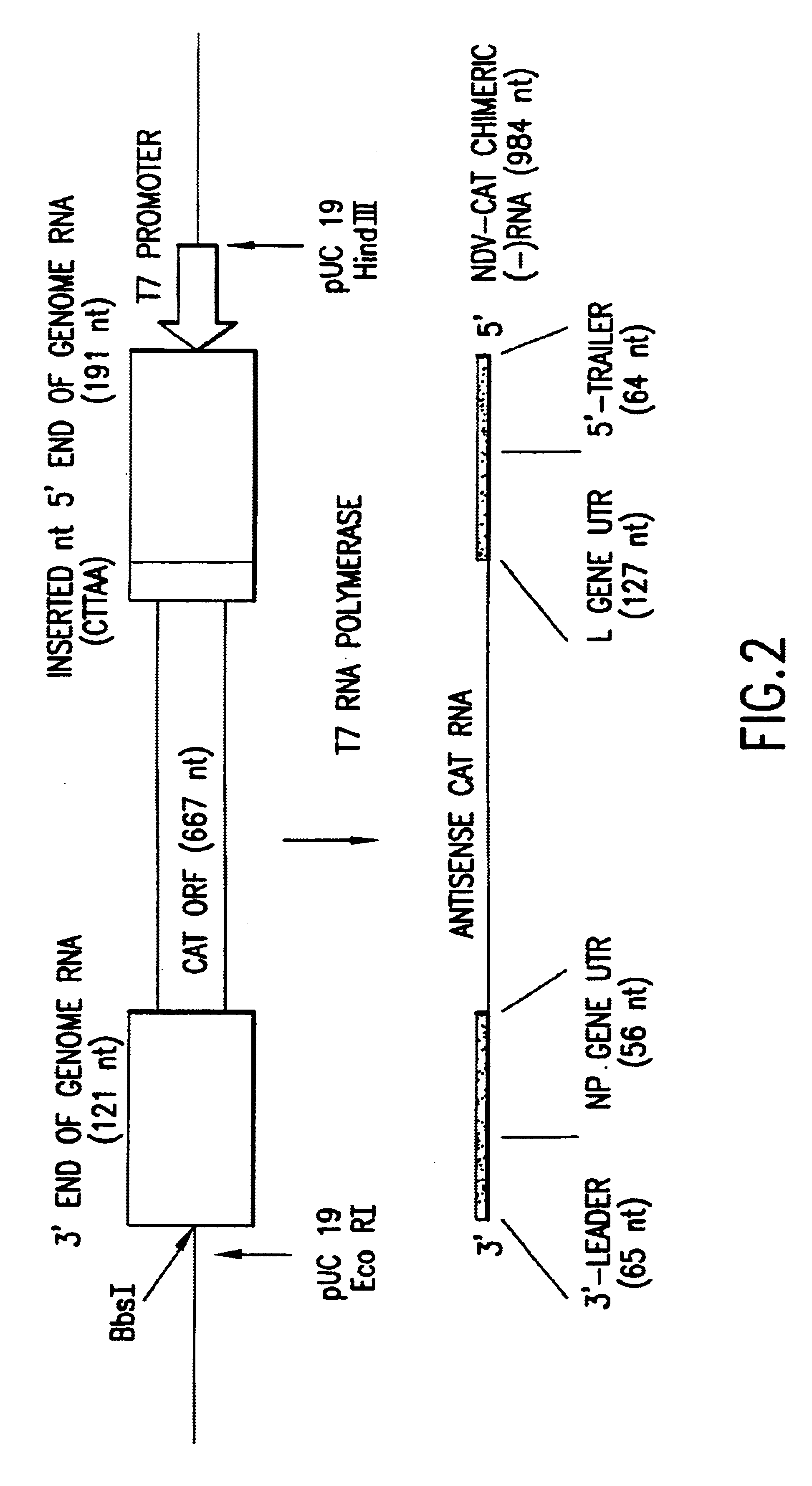Helper-free rescue of recombinant negative strand RNA virus
a technology of recombinant negative strand and virus, which is applied in the field of generating infectious recombinant negative strand rna virus, can solve the problems of strict limitations on repeated use, lack of variation in its major epitope, and inability to analyze signals
- Summary
- Abstract
- Description
- Claims
- Application Information
AI Technical Summary
Benefits of technology
Problems solved by technology
Method used
Image
Examples
Embodiment Construction
: HELPER VIRUS FREE RESCUE OF INFLUENZA A / WSN / 33
The present invention demonstrates the ability to generate recombinant negative-strand RNA viruses in the absence of helper virus using expression vectors.
Materials & Methods
Preparation of Plasmids Encoding the vRNA Secments of an Influenza A Virus
Eight plasmids (pPOL1-PB2-RT, pPOL1-PB1-RT, pPOL1-PA-RT, pPOL1-HA-RT, pPOL1-NP-RT, pPOL1-NA-RT, pPOL1-M-RT and pPOL1-NS-RT) each expressing a different vRNA segment of influenza A / WSN / 33 were constructed. These plasmids are based oln the pUC19 or pUC18 plasmids and have a structure analogous to the model vRNA segment encoding plasmid, pPOL1-CAT-RT, described in Pleschka et al., 1996, J. Virol. 70:4183-4192, except that the cDNA encoding the vRNA CAT reporter gene segment (an open reading frame for chloramphenicol acetytransferase in negative polarity flanked by the non-coding regions of the NS-encoding vRNA segment of influenza A / WSN / 33) has been substituted by a cDNA encoding a native vRNA s...
PUM
| Property | Measurement | Unit |
|---|---|---|
| concentration | aaaaa | aaaaa |
| pore size | aaaaa | aaaaa |
| body weight | aaaaa | aaaaa |
Abstract
Description
Claims
Application Information
 Login to View More
Login to View More - R&D
- Intellectual Property
- Life Sciences
- Materials
- Tech Scout
- Unparalleled Data Quality
- Higher Quality Content
- 60% Fewer Hallucinations
Browse by: Latest US Patents, China's latest patents, Technical Efficacy Thesaurus, Application Domain, Technology Topic, Popular Technical Reports.
© 2025 PatSnap. All rights reserved.Legal|Privacy policy|Modern Slavery Act Transparency Statement|Sitemap|About US| Contact US: help@patsnap.com



